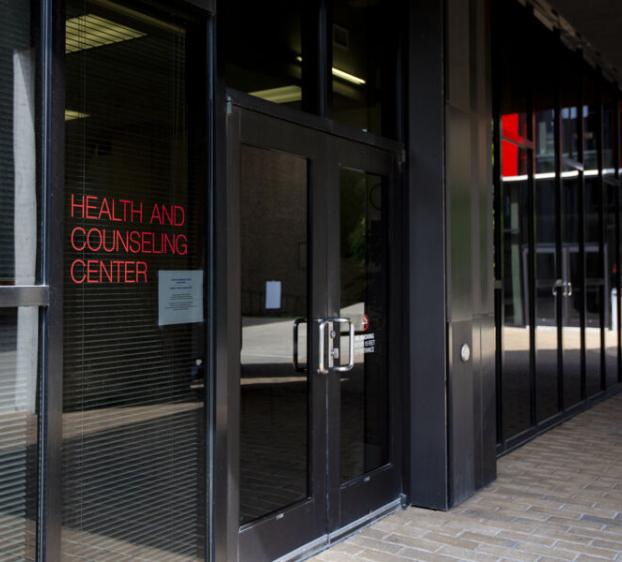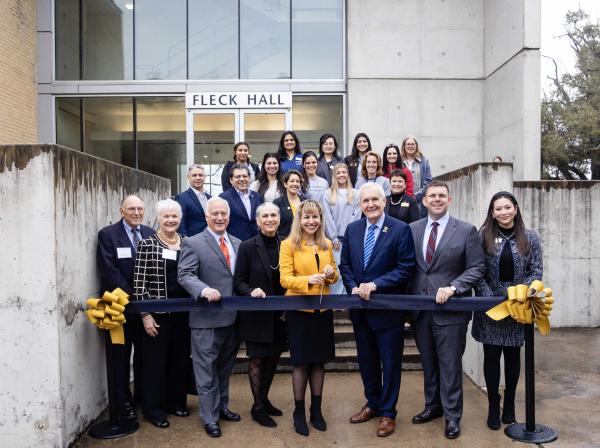6 Key Reasons to Visit the Health & Counseling Center
College is supposed to be challenging, but sometimes students feel overwhelmed for reasons beyond academics. Anxiety, depression, stress, family issues and relationship struggles can make it hard to focus.
Fortunately, you have a great resource in the Health & Counseling Center (HCC), where you’ll find a medical doctors, nurse practitioners, counselors, case managers and a psychiatrist. Up to a third of students at St. Edward’s visit the HCC, so you’re far from alone.
Wondering if a visit to the HCC is right for you? Here are 6 situations when it’s a good idea to reach out for help.
1. When You’re Considering Going off Your Medication
If you take medication to manage a physical or mental health condition, consult with someone in the Health and Counseling Center before stopping. A student might decide they don't want to be on medication, that they want to be “normal.” But students should take into account that what’s keeping their symptoms managed is the medication itself. Other times, students decide they want to drink alcohol or use other substances that don’t mix with their medication, so they opt to go off the medication. If you’re uncertain about staying on your medication, talk to someone in the HCC.
2. When You’re Only Getting a Few Hours of Sleep Each Night
In college, it can seem like there are never enough hours in the day — for class, studying, work, involvement in student activities and leadership, and a social life. Students find themselves sleep deprived because they’re burning the candle at both ends. They forget how important it is to get quality sleep, which is six to eight hours for many people. It might seem like everyone around you is operating fine on two or three hours of shuteye a night, but at some point, sleep deprivation catches up with everyone. A conversation with someone at the HCC can help you create better balance in your life and set boundaries to preserve sleep time.
3. When You’re Using Alcohol or Other Drugs for Self-Medication and Stress Relief
Some students will start using alcohol socially, but, for some, it can snowball and get out of control. If your friends drink often, your idea of an acceptable amount of alcohol consumption might be a little skewed. Remember that binge drinking, which is accompanied by other risks, is defined as five drinks for men, or four drinks for women, in a two-hour period. If you’re binge drinking, or find that your alcohol use has started to affect other aspects of your life, it’s time to reach out for help. Talking with a counselor in the HCC is an important step toward getting help, and it's confidential. Even in cases of underage drinking, which is illegal, information disclosed about alcohol use is confidential.
4. When Your Eating Habits Have Changed — Or You Notice Your Body Changing
When you leave home for the first time, what and when you eat is up to you. This new freedom sometimes results in students overeating, eating unbalanced meals, or picking up habits that might seem healthy but aren’t, like drinking juice or protein shakes instead of eating, or taking diet pills. Disordered eating takes many forms, so if you notice your meals are significantly different than they were when you lived at home, stop in to the HCC and talk with a counselor or nurse. And certainly, if you’ve struggled with an eating disorder in the past and notice it returning with the stress of college, check in with a counselor.
5. When You Just Don’t Feel Like Yourself
Many students come to the HCC because of a general feeling that things aren’t quite right. HCC staff often meet with students who start the conversation with, “I’m not feeling well,” “I’m struggling” or “Something is going on, and I don’t quite know what it is.” It’s fine — encouraged, really — to visit the HCC even if you can’t define what’s wrong. The staff have worked with hundreds of college students and can help you figure out what’s going on.
Another phrase the HCC staff hears: “A professor or staff member or a student thought I should come talk to someone.” Because St. Edward’s has a close-knit community, people look out for each other. If a friend or advisor suggests you visit the HCC, it’s probably a good idea.
6. When You’re Worried About a Friend or Roommate
Up to 10 percent of students who visit the HCC are accompanied by a fellow student who has offered to walk over with them. If you notice something’s not right with your roommate or friend — they are skipping classes, abusing substances, taking diet pills, exercising obsessively, talking in ways that worry you — encourage your friend to visit the HCC, and offer to come along. If you’re not comfortable talking about the issue with your friend or acquaintance, you can mention it confidentially to your resident assistant, a counselor in the HCC, or a staff member in the Dean of Students office. You don’t have to handle the problem — you just need to get your friend connected with an expert who can help.

24/7 Assistance on Campus
The HCC is on the first floor of Lady Bird Johnson Hall and is open Monday–Friday from 8 to 5. (And a counselor is on call after hours.) If you need to speak with a counselor after hours for an urgent matter, call 512-448-8444 and ask the University Police Department (UPD) dispatch to contact the on-call counselor. If you need help with a medical emergency during evenings or weekends, call 9-1-1 for UPD assistance.


